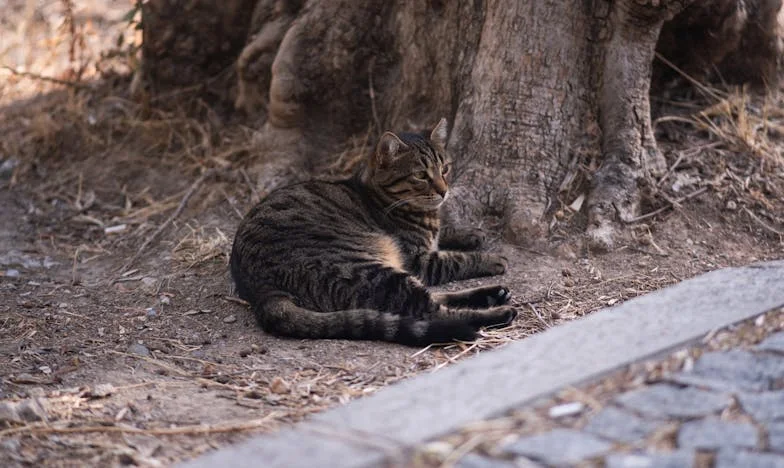The Unexpected Call: A Life Unraveled
“Mrs. Miller? This is Detective Carter from the Richmond Police Department. I need to speak with you urgently.”
The words sliced through my half-dream like a cold knife. I sat up so quickly the couch creaked beneath me, my heart pounding. The sun was already sliding behind the neighbor’s maple, casting long, uneasy shadows across the living room carpet. I glanced at the clock—4:12 PM. Pausing, I pressed the phone harder against my ear, as if that could change the message.
“Is something wrong? Is my husband okay?” I blurted, voice trembling, already picturing Paweł’s gentle smile and the way he waved from our battered old Subaru just hours ago, heading to Bill’s place to help fix that old fence.
Detective Carter’s tone softened, but only a little. “Your husband is fine. This isn’t about him. May I come by your house this evening? It’s a sensitive matter.”
Sensitive matter. The phrase echoed in my mind as I numbly agreed. The call ended with a promise: he’d arrive in an hour. In that hour, the house—usually a source of comfort—turned on me. Shadows seemed to gather in the corners. Every sound, from the ticking clock to the refrigerator’s hum, pressed on my nerves.
I texted Paweł, fingers shaking: “Everything ok at Bill’s? Call me when you can. Love you.” I didn’t mention the detective. Why worry him? Yet, my own worry grew, snaking through my stomach, making it impossible to sit still. I straightened the cushions, wiped the spotless kitchen counter, and checked the locks on the doors. Anything to keep my hands moving.
A soft knock reverberated through the quiet. When I opened the door, Detective Carter stood on my porch, young but tired, his badge catching the last light. He didn’t remove his shoes, but wiped them carefully on the mat before stepping inside.
He asked if I could sit down. I nodded, and he settled into the armchair opposite me, notebook in hand. I could see the lines in his forehead deepen as he spoke.
“Mrs. Miller, do you have any family in the area?” he asked, voice gentle.
The question threw me. “No, just my husband and our daughter, Emily. She’s in Boston—law school. Why?”
He hesitated, and in that pause, the world shifted. “We received a call today about your sister, Susan. She was found unconscious in her apartment in Richmond.”
My breath caught. Susan. I hadn’t spoken to her in over a decade—not since that fight at Mom’s funeral, the one that split us apart forever. Guilt and anger rushed up, choking me.
“Is she…?” I couldn’t finish.
He shook his head. “She’s alive, but in critical condition. She listed you as her emergency contact.”
The words hung between us, heavy with everything I’d tried to forget. I felt years collapsing into this moment: the laughter of childhood, the bitterness of betrayal, the silence that followed.
“Why are you telling me this now?” My voice was sharper than I intended. “We haven’t spoken in years.”
Detective Carter’s eyes softened. “She has no one else.”
A long silence stretched. I stared at the carpet, unable to look at him. The house, once so safe, now felt like a cage.
“I’ll go,” I whispered, surprising myself.
He nodded, scribbled something in his notebook, and handed me a card. “Here’s the hospital address. If you need a ride, let me know.”
After he left, I collapsed onto the couch, tears streaming down my face. Why now, Susan? Why after all these years? I dialed Emily, desperate to hear her voice. She picked up on the third ring, her tone bright, then worried as she heard my sobs.
“Mom? What’s going on?”
“It’s Susan. She’s in the hospital. They… they called me. I don’t know what to do.”
A pause. “Do you want me to come home?”
“No. No, honey. I just needed to hear your voice.”
We talked a while longer. After we hung up, I stared at the family photo on the mantle—me, Paweł, and little Emily, all smiles. Susan’s absence in that frame was a wound I’d buried deep, but it throbbed now.
I left a note for Paweł and drove through dusk, the highway blurring past. Each mile was a memory—childhood summers, whispered secrets, the argument that tore us apart. When I reached the hospital, the sterile lights and antiseptic smell hit me like a slap.
Susan looked so small in the bed, tubes snaking from her arms. Her hair—once thick and wild like mine—was thin, gray at the temples. For a moment, I just stood there, unable to cross the threshold.
A nurse came in. “Are you family?”
I nodded. The word tasted strange.
The nurse glanced at the chart. “She’s been asking for you.”
I sat by her side, clutching her cold hand. Her eyelids fluttered. “Mira?”
“I’m here, Sue. I’m here.”
Tears slipped from her eyes. “I’m sorry. For everything.”
I wanted to be angry, to hold onto the years of silence. But sitting there—her hand in mine—I couldn’t. I whispered back, “Me too.”
We talked, haltingly at first, about old wounds, Mom’s death, the fight that drove us apart. She confessed things I never knew—her struggles with addiction, the pain she hid. I told her about Emily, about retirement, about the loneliness that sometimes clawed at me since stepping away from work.
In the days that followed, I visited every afternoon, even when Paweł returned. He was quiet when I told him, holding me as I cried. “Family isn’t easy,” he said. “But you’re strong, Mira. Stronger than you know.”
Susan’s condition improved. We found a fragile peace, a tentative promise to do better—if not for the past, then for whatever future we had left.
Sometimes, late at night, I wonder why it took so long. Why do we let pride and pain keep us from the ones we love? Would you forgive, if you were in my shoes?
